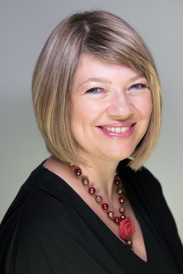On 22 August 2016, I read a blog post by my dear friend Gulara Vincent on the joy of completing one’s tasks. In the post, she affirms that she must finish everything she starts otherwise “all the work you put in simply doesn’t count”. (https://gularavincent.com/the-joy-of-completion/)
Unlike her, I think that there is value in unfinished businesses or books. They are like the humble manure that feeds the seeds of emotional and spiritual growth, the stepping stones for writing better books.
In my family, duty came before pleasure, no matter what. Days out were either non-existent or had to be cut short because of my parents’ working commitments. My mum, like many other women at the time, was expected to take care of the family (cooking, cleaning, ironing, and so on) and work full time.
“Life is what happens to you while you’re busy making other plans”
Therefore, I took for granted that I had to finish whatever I started, felt ashamed in the rare cases I didn’t, and planned my future. In my twenties I discovered that Allen Saunders’s quote “Life is what happens to you while you’re busy making other plans” was an accurate description of what was happening to me. Since then, slowly and painfully, I’ve been learning to go with the flow, as a woman and as a writer.
As a woman, once I had my own family, I behaved like my mum at first, working full time and looking after the flat, until I split the chores in half and asked my husband for help. I always did my part, while most of the times he didn’t. That infuriated me, but I acknowledge that he taught me something precious: the importance of taking care of myself, of listening to my body.
Now, many years, mistakes and health problems later, I don’t mind if my home is not spotless because, for example, I prefer to rest instead of dusting a room. I do my best, and that’s enough even if it’s not perfect. And I’ve accepted that broken relationships cannot be fixed and therefore promises of everlasting love cannot be kept. Once a relationship has served its spiritual purpose, the business is finished and moving on is the wise thing to do.
"...then I allow the characters to take it over, to make it more vivid and real."
As a writer, I plot my story before starting to write it, and then I allow the characters to take it over, to make it more vivid and real. When I’m stuck, it’s not because of the writer’s block. I don’t force the process anymore. I do other things instead, like research, editing, reading, housework. Especially housework. It clears my mind better than anything else. The story finds the way to emerge and form in my conscious mind when it’s ready for me to write it down. Going with the flow also means to accept that my first novel, which I started about six years ago, will remain unfinished. I’ve used some research material I gathered when writing it, and recycled a few scenes, and that’s all.
Nevertheless, the time spent on it wasn’t wasted. Writing those first nine chapters made me realise that I needed to attend creative writing classes and workshops if I was serious about becoming a writer; and attending those courses taught me, among other things, the importance of constructive feedback, that now I covet as much as I once feared it.
"I’ve discovered that the solutions the universe offers me are more attuned to my life purpose."
In conclusion, as a writer and a woman, I’m following the path of least resistance instead of the one that seems more logical. I’ve discovered that the solutions the universe offers me are more attuned to my life purpose, that attaining perfection in everything I do is less important than keeping my sanity; and that to keep my sanity, sometimes I must put pleasure before duty. Or, to quote Stephen King, in his famous book “On Writing”: “As with all aspects of the narrative art, you will improve with practice, but practice will never make you perfect. Why should it? What fun would that be?”
How do you feel about unfinished business? Have any life lessons helped you in your writing?
Unlike her, I think that there is value in unfinished businesses or books. They are like the humble manure that feeds the seeds of emotional and spiritual growth, the stepping stones for writing better books.
In my family, duty came before pleasure, no matter what. Days out were either non-existent or had to be cut short because of my parents’ working commitments. My mum, like many other women at the time, was expected to take care of the family (cooking, cleaning, ironing, and so on) and work full time.
“Life is what happens to you while you’re busy making other plans”
Therefore, I took for granted that I had to finish whatever I started, felt ashamed in the rare cases I didn’t, and planned my future. In my twenties I discovered that Allen Saunders’s quote “Life is what happens to you while you’re busy making other plans” was an accurate description of what was happening to me. Since then, slowly and painfully, I’ve been learning to go with the flow, as a woman and as a writer.
As a woman, once I had my own family, I behaved like my mum at first, working full time and looking after the flat, until I split the chores in half and asked my husband for help. I always did my part, while most of the times he didn’t. That infuriated me, but I acknowledge that he taught me something precious: the importance of taking care of myself, of listening to my body.
Now, many years, mistakes and health problems later, I don’t mind if my home is not spotless because, for example, I prefer to rest instead of dusting a room. I do my best, and that’s enough even if it’s not perfect. And I’ve accepted that broken relationships cannot be fixed and therefore promises of everlasting love cannot be kept. Once a relationship has served its spiritual purpose, the business is finished and moving on is the wise thing to do.
"...then I allow the characters to take it over, to make it more vivid and real."
As a writer, I plot my story before starting to write it, and then I allow the characters to take it over, to make it more vivid and real. When I’m stuck, it’s not because of the writer’s block. I don’t force the process anymore. I do other things instead, like research, editing, reading, housework. Especially housework. It clears my mind better than anything else. The story finds the way to emerge and form in my conscious mind when it’s ready for me to write it down. Going with the flow also means to accept that my first novel, which I started about six years ago, will remain unfinished. I’ve used some research material I gathered when writing it, and recycled a few scenes, and that’s all.
Nevertheless, the time spent on it wasn’t wasted. Writing those first nine chapters made me realise that I needed to attend creative writing classes and workshops if I was serious about becoming a writer; and attending those courses taught me, among other things, the importance of constructive feedback, that now I covet as much as I once feared it.
"I’ve discovered that the solutions the universe offers me are more attuned to my life purpose."
In conclusion, as a writer and a woman, I’m following the path of least resistance instead of the one that seems more logical. I’ve discovered that the solutions the universe offers me are more attuned to my life purpose, that attaining perfection in everything I do is less important than keeping my sanity; and that to keep my sanity, sometimes I must put pleasure before duty. Or, to quote Stephen King, in his famous book “On Writing”: “As with all aspects of the narrative art, you will improve with practice, but practice will never make you perfect. Why should it? What fun would that be?”
How do you feel about unfinished business? Have any life lessons helped you in your writing?
| Angela is a SF author and she lives in Folkestone (UK). She has published two stories: Homecoming in the American SF magazine Nebula Rift in 2014 and .A New Beginning in the Folkestone 2014 Anthology. Her new novella Across Spacetime will be released by Fountain Blue Publishing in 2016. #AngelaGuidolin http://angelaguidolinauthor.weebly.com/ |


 RSS Feed
RSS Feed
